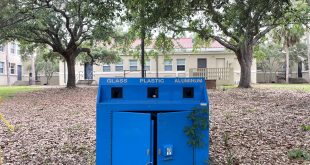At least seven states are urging students to turn in their FAFSA applications as close to Jan. 1 as possible, due to depleting funds.
The states cautioning students are: Illinois, Kentucky, North Carolina, South Carolina, Tennessee Vermont and Washington.
State funds are limited, due to the economic downturn over the past three years—even funds for grants are expected to fall short of previous years.
Budget deficits are growing despite a greater demand for financial aid.
In Oregon, the cutoff date for the FAFSA is Feb. 1, one of the earliest cutoff dates than any other state.
In Oklahoma the application deadline has been pushed to March 1.
The Illinois Student Assistance Commission announced that it was suspending awards for students who had not yet submitted their FAFSA.
John Samuels, the spokesman for ISAC, said that the program has already run out of funds for the Monetary Awards Program grant—a program that gives grants to students enrolled in Illinois colleges and universities.
Arizona has announced that two grants, the Postsecondary Education grant and the Private Postsecondary Student Financial Assistance will no longer be available.
The Postsecondary Education grant promotes reform, innovation, and improvement in postsecondary education.
The Private Postsecondary assistance program provides students with $2,000 a year, for two years, to financially support and to encourage Arizona Community College graduates to attend a private baccalaureate granting institution in Arizona.
President of the National Association of State Student and Aid Programs, Vicki Merkel, states that there is one common problem: budget gaps.
Many states are collecting less in taxes and lottery revenue because of the economic downturn. As a result, they have less money for grant programs.
Director of VSU Financial Aid, Doug Tanner, said that he has not heard of any cuts or changes in federal or state financial aid funding for the upcoming year.
“Federal aid is on the chopping block every time congress tries to balance the budget,” Tanner said. “However, most financial aid funds are not limited and any cuts would impact students regardless of when they apply for FAFSA.”
Tanner goes on to explain possible changes at VSU.
“We actually expect a 3-percent increase in the HOPE Scholarship and 5 to 10-percent increase in federal funding for the Supplemental Educational Opportunity Grant and Federal Work Study programs,” Tanner said. “The SEOG Grant and Federal Work Study programs are the only limited federal financial aid programs that we have, but could be the first cut. Even with the expected increase, they are still very limited and are awarded to students with the highest financial need that applies first.”
 The Spectator The independent student newspaper of Valdosta State University
The Spectator The independent student newspaper of Valdosta State University




